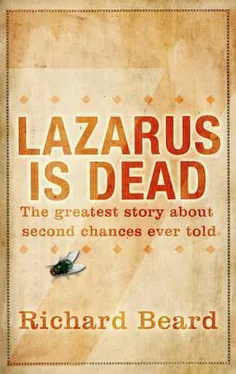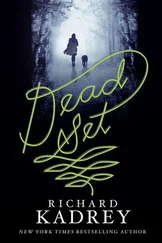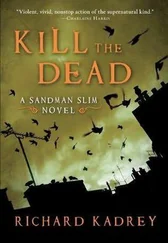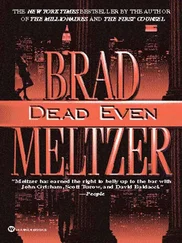He splashed hard with his arms, slapping his hands into the water. He aimed himself at Amos but wasn’t making progress. He put his foot down searching for solid ground but the gravel dragged him back before he could push himself off.
Now Lazarus, too, felt the strength leave his arms.
Staying alive would take all his effort. Finding his depth. Reaching the shore. He wanted to help Amos, with his whole heart he wanted to save him, but only to the point where he had to save himself. That was as far as his saving would go. Ahead of him Amos went under. Lazarus thrashed with his arms. Amos drifted away from him. Lazarus felt the nearness of death and he knew, with absolute certainty, that above all else he wanted to live.
Jesus stood on the shore, holding their clothes and sandals. He didn’t help because he couldn’t swim. He patiently watched Amos drown. He watched Lazarus save himself. He did not intervene.
Lazarus remembers every detail — this is not a forgettable experience. On the shore, when he hauled himself out, Jesus had lost that look in his eye that said everything would turn out fine.
The body was never found, or if it was Lazarus was never told. He didn’t ask.
He travelled home to Nazareth on the back of a cart, surrounded by veiled women who took turns to press him close to their breasts. He couldn’t remember Jesus as a presence in the cart going home, but presumably he was there.
3
INNOCENT PEOPLE MUST drown in Lake Galilee. Blameless families are required to grieve. This must be so, otherwise no one would be frightened for the disciples in the storm.
If Jesus is the son of god, then all stories both before and after exist in the service of this one incredible story. Every drowning makes its contribution to the glory.
‘When evening came, his disciples went down to the lake, where they got into a boat and set off across the lake for Capernaum. By now it was dark, and Jesus had not yet joined them. A strong wind was blowing and the waters grew rough. When they had rowed three or three and a half miles, they saw Jesus approaching the boat, walking on the water ’ (John 6: 16–19).
Jesus walks on water. This is the next miracle, the fifth sign of the messiah as recorded in the Gospel of John.
Several explanations are possible. Jesus is standing on an unmapped sandbar. The disciples, confused by threatening weather, experience a moment of collective hysteria. Glaucoma, trachoma, conjunctivitis. In a random sample of twelve first-century Galileans, as many as a third may have suffered from an eye complaint.
Jesus walks on water; the body of Lazarus collapses. His skin retracts and his joints pop with fluid. Veins push outward through his black and yellow flesh. He jolts awake. The whites of his eyes are red.
The fifth miracle sends his body into a dramatic decline. Overnight, at the Bethesda pool, he reaches the invalid stage where on the second morning his sisters talk about him as if he isn’t there.
‘Now, please,’ Mary begs. ‘Look at him. We have to send for Jesus.’
‘There’s nothing anyone can do,’ Yanav says. ‘It’s over.’
Mary looks at Martha.
‘We promised,’ Martha says. ‘Disobeying his wishes could make him worse.’
‘How could he be any worse? He doesn’t know up from down.’
‘We promised him we wouldn’t send for Jesus.’
His sisters argue. Lazarus notices a tremor on the surface of the water. He doubts his eyesight but then the reflections break up, clouds in the sky shimmering and cracking. No one else sees it. He could topple himself in, first into the pool as the angels pass by.
He stares at the trembling water. He will hit the surface, sink, probably drown.
‘Send for Jesus,’ Mary pleads. ‘That’s all we have to do. Let me send a messenger.’
‘Stop,’ Lazarus says.
The pool glasses over. It is difficult for Lazarus to speak, as if he’s slowly being strangled with the minimum of force. ‘Don’t send for Jesus. And get me away from the water. It’s dangerous.’
Lazarus is going blind.
On the road home to Bethany the darkness at the edge of his vision begins to close in. He sees a migrating crane, sunlight bright on the tips of its wings. He finds it easier to close his eyes than to work out what anything means.
In the final stage of his illness, the various diseases blunder into each other, and the ability of his body’s defences to distinguish between self and not-self fades. His immune cells overwhelm some areas and miss the distress signals from others. His B-lymphocites are unable to protect him. His T-lymphocites recognise their doom and surrender.
Death is filthy. Lazarus has no control over his bowels, and is exhausted after retching whatever thin gruel reaches his stomach. He wills his inner workings back into their rightful place, but doesn’t know what to imagine or how the unimaginable should properly fit together. The effort of not knowing defeats him.
Poor Lazarus, like in the parable. Perhaps death is for the best, and if there is a heaven he may yet be comforted there.
Mary crouches close to the creaking stretcher, praying into her brother’s ear. He beckons her closer still. It hurts him to speak, but if he stays silent the pain does not diminish.
‘What?’ Mary asks. ‘What are you trying to tell me?’
‘Stop praying. Send for Lydia.’
‘I will not.’
‘Send for her. Please.’
Jesus walks on water. Jesus stands on the shore with their clothes in his arms, watching Amos drown. The gap between these two events is the emptiness into which Lazarus subsides.
Were they friends? Not really. Not after Amos died.
Jesus spent weeks afterwards in the synagogue, searching through the holy scrolls. He’d find obscure references to console his friend — ‘Come, let us return to the lord. He has torn us to pieces but he will heal us; he has injured us but he will bind up our wounds’ (Hosea 6: 1) — but to Lazarus these were only words.
Amos was gone, and when you’re dead you’re dead. That’s what the Sadducees believed, and their scriptural evidence was easier to find — ‘the dead know nothing; they have no further reward, and even the memory of them is forgotten. Their love, their hate and their jealousy have long since vanished; never again will they have a part in anything that happens under the sun’ (Ecclesiastes 9: 5–6).
Lazarus wept. Jesus watched. Lazarus wiped his eyes and walked away.
He grew the first hairs of his beard — again Lazarus was first. He shaved them off. The Rabbi urged the Nazareth villagers to allow for the boy’s anger and tolerate his wayward behaviour. This flaunting of the laws was grief, or growing up. All being well, he’d soon return to the fold.
To Lazarus, their tolerance made no difference, because god destroys both the blameless and the wicked. He could be understood or forgiven or ignored, without consequences — their god, if he existed, acted as if he didn’t. Amos was dead. There were no divine interventions.
Jesus grew his hair and his beard like everyone else, as if god were not at fault and god was watching and god cared. Jesus kept himself busy. He had sheep troughs to hollow, and advanced classes on the intricate rituals of the Torah. Lazarus sometimes despised him, watching silently as Jesus sanded a nut bowl.
‘How special is it just doing what your dad does? We can be more important than this.’
Joseph told Lazarus he was a fool for wanting to leave the village. Lazarus called Joseph a hypocrite. He and Mary had left Bethlehem for a better life, and Lazarus wanted the same.
‘Those were exceptional circumstances.’
Читать дальше












